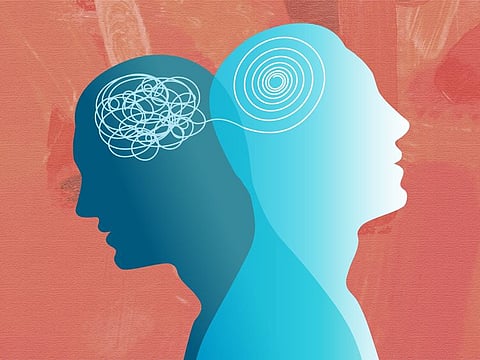How are you coping with Covid-19 stress?
Life is full of challenges but there is a way to make it through in a positive way

The word coping is heard generally in conversation and it refers to how we deal with certain situations in life. We all have faced some sort of difficulty in coping with life events as they show up in our pathway and it all depends on the ways that we interpret them.
Coping has a psychological meaning behind it, and researchers define it as cognitive and behavioural efforts to manage challenging situations whether they are external or internal. The ultimate goal of coping is to overcome the condition and return to stability. We as humankind cope with life’s obstacles differently to keep the wheel of life spinning.
Coronavirus anxiety
COVID 19 pandemic has caused a lot of stress, worry and fear to many people because handling uncertainty is the toughest thing to deal with. We do not know how exactly this crisis will impact us and others. But UAE is always ahead of the game and the National Programme for Happiness and Well-being (NPHW) initiated a national hotline where people can conduct calls with psychology experts to assist them in coping with stress. Additionally, NPHW uses online social media platforms to run daily sessions where they offer their support, tips and advice to overcome this circumstance.
On top of that, UAE government institutions have given support resources to individuals — from parents to students and employees to help them to maintain stability in their lives during this health crisis. For example, Department of Knowledge and Education (ADEK) prepared a guideline for distance learning which helps parents. It includes beneficial information like strategies on how to support your child cope in this pandemic.
Coping is not about what is happening around us, it is more about how our minds interpret the situation. It is time for us to see stress as an opportunity to embrace, not something to hide from

We all face stressful situations in our life, and we get wound up for different reasons, but we do not use the same mechanisms to cope with it. Each one of us uses different coping strategies to manage our feelings, thoughts, and actions. According to scholars, there are four various coping strategies: emotion-focused, problem-focused, occupation-focused and appraisal-focused.
Two most common coping mechanisms: problem and emotion-focused strategies are the focus of my piece. People who use the problem-focused coping strategy rely on using dynamic approaches to tackle the situation that causes distress, so they focus on the problem itself and find ways to crack it. While the people who use the emotion-focused coping strategy focus on their emotions and they handle the feelings of stress and not the actual situation.
Common coping mechanism
Two coping styles come out of these coping strategies. In the active coping style we realise the situation that causes the stress to us and put efforts to reduce the stress. In contrast, the second style is the avoidant coping style where we may or may not be aware of the cause of the stress.
You may be wondering and asking yourself which coping style would work for me. Some reason that active coping style is the finest style as it helps you in the long term, protects and increases your well-being and the end result is less stressful. Active coping is considered a positive coping style because you view the situation as an opportunity instead of the problem and you always find a room for growth and advancement.
However, the avoidant coping style may assist you in dealing with stressful situation in the short term and ultimately, it will result in more challenges. This sort of coping falls under the unhealthy because it creates anxiety and harms self-esteem.
There are various healthy coping activities which we can practice to cope effectively and positively with stress and challenging times. To sum up, the human mind is extraordinary as it has great potential to manage unexpected situations and conquer difficult times.
Coping is not about what is happening around us, it is more about how our minds interpret the situation. It is time for us to see stress as an opportunity to embrace, not something to hide from. After all, it all depends on us, but we need to choose our coping mechanism carefully.
Asma Ibrahim Al Blooshi is an expert in educational teaching and technology







